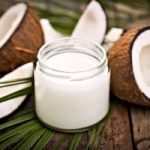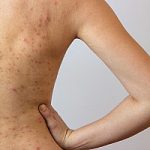Fish Oil May Not Lower High Cholesterol Levels

Can fish oil lower high cholesterol?
Research shows they may reduce elevated triglyceride levels, but don’t not have any affect on cholesterol.
Fish oils are a natural source of the omega 3 fatty acids, eicosapentaenoic acid (EPA) and docosahexaenoic acid (DHA).
EPA and DHA have many health benefits; the primary one is reducing your risk for heart disease.
However, evidence suggests that while fatty acids can reduce high triglyceride levels, the research shows they have little effect on lowering elevated cholesterol levels.
Why High Cholesterol is Bad for Your Heart
If cholesterol builds up in your arteries, it can decrease blood flow which can reduce the amount of oxygen going to your brain, organs and heart.
This can increase your risk for high blood pressure, stroke or even a heart attack.
Doctors usually prescribe drugs for high cholesterol, called statins. These medications reduce the production of cholesterol which lessens the amount of plaque on your blood vessel walls. Having less arterial plaque in your blood vessels can lower your risk for high blood pressure and blood clots.
According to the American Heart Association, statins are the only cholesterol-lowering drug class that has been directly associated with a reduction in the risk of heart attack or stroke.
Do Fish Oils Affect Cholesterol Medications?
If you take medications for high cholesterol or elevated blood pressure, is it safe to take fish oils?
Scientists at the Department of Medicine at Baylor College analyzed data from a number of studies and concluded that using fish oil with statin drugs improves cholesterol without the side effects associated with taking these drugs alone.
What’s the Best Fish Oil Dose for Lowering Triglycerides?

Research indicates that the best dose will depend on your pre-existing health condition.
People with high blood pressure and coronary heart disease may need higher amounts than normal, healthy people.
A report in the Oct. 2008 issue of Quarterly Journal of Significant Omega-3 Research found a dose of 250-500 mg. EPA and DHA (1-2 servings of oily fish/week) showed a 25-50% lower risk of dying from heart disease.
A review of 47 research papers in the July 2009 issue of International Journal of Cardiology showed that 3.25 grams EPA and DHA per day produces a significant reduction in triglycerides.
And another study in the Journal of Clinical Nutrition concluded that 3.4 grams a day of omega 3’s reduced serum triglyceride concentrations by 27%.
The American Heart Association states that an average dosage of 2 to 4 grams per day can reduce triglycerides:
“The amount of marine-derived omega-3 polyunsaturated fatty acids needed to significantly lower triglyceride (2 to 4 grams) is hard to get from a daily diet alone, so supplementing with capsules may be needed”.
You may be able to prevent or treat unhealthy cholesterol levels by making changes to your lifestyle, such as healthier eating and more exercise.
For other people with elevated cholesterol levels, medication may also be required.
Work alongside with your primary care physician to create a plan that meets your medical needs.
Please do not take any natural health supplements without consulting with your doctor.
Home Page > Fish Oil Home Page > Warning! Fish Oil Alone May Not Lower High Cholesterol Levels





